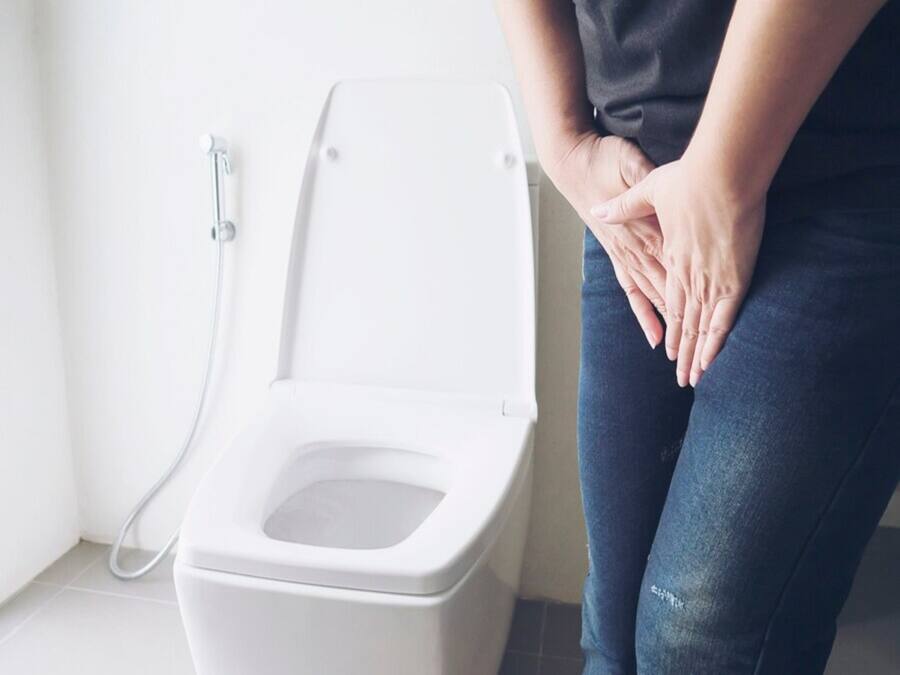![]() VERIFIED By Dr Deepti Sureka, consultant female urologist at Asian Institute of Nephrology and Urology, Hyderabad
VERIFIED By Dr Deepti Sureka, consultant female urologist at Asian Institute of Nephrology and Urology, Hyderabad

Urological health in women is crucial for preventing and treating issues like incontinence, UTIs, and pelvic floor disorders affecting quality of life.
Urological health in women: Urological health is a critical aspect of overall well-being, and while many discussions focus on men’s urological issues, women also face a range of concerns that can impact their quality of life and overall well-being. It, therefore, becomes important to understand these common urological conditions and their treatments, so that women can seek appropriate care and maintain good health all through the year, but especially in the monsoon season. According to Dr Deepti Sureka, consultant female urologist at Asian Institute of Nephrology and Urology, Hyderabad, there are seven main urological concerns in women that need to be addressed. Read on to find out.
Urinary Tract Infections (UTIs)
UTIs are more common in women. Symptoms include a burning sensation during urination, frequent urge to urinate, cloudy or strong-smelling urine, and pelvic pain.
Treatment for UTI: According to Dr Sureka, UTIs can be managed with a course of antibiotics. Drinking plenty of water and urinating in a timely manner can help flush out bacteria. To prevent future UTIs, one needs to practise good hygiene, avoid irritants like harsh soaps or feminine sprays, and urinate after sexual activity.
Also Read
Overactive Bladder
Overactive bladder is characterised by a frequent, urgent need to urinate, often accompanied by urinary incontinence.
Treatment: Behavioural strategies such as bladder training and pelvic floor exercises can help, along with medications that relax the bladder muscles. For severe cases, neuromodulation therapy or botox injections may be considered, the doctor says, adding that maintaining a healthy diet and managing fluid intake can help.
Kidney Stones
Kidney stones are mineral and salt deposits that form in the kidneys and cause lower back pain, blood in urine. Stones can vary in size and location.
Treatment: Small stones often pass naturally with increased fluid intake. For relatively larger stones treatment options include medical and surgical interventions.
Stress Urinary Incontinence
Stress urinary incontinence occurs when physical activities such as coughing and sneezing cause involuntary leakage of urine. This condition is related to weakened pelvic floor muscles.
Treatment: Kegel exercises to strengthen the muscles; lifestyle modifications such as weight loss. In more severe cases, one may need medical or surgical interventions.
Interstitial Cystitis
The doctor explains that interstitial cystitis is a chronic condition characterised by bladder pain, pressure, and frequent urination in the absence of infection. Its exact cause is unknown, but it can significantly impact daily life.
Treatment: Dietary changes need to be made to avoid bladder irritants. Certain medications can help. Physical therapy, bladder instillations, and in a few cases, surgical interventions may be needed.
Pelvic Organ Prolapse
According to Dr Sureka, pelvic organ prolapse occurs when the bladder, uterus, or rectum protrudes into the vaginal wall due to weakened pelvic supports. This condition can cause urinary incontinence, frequent urinary tract infections, and a feeling of pelvic pressure or fullness.
Treatment: Pelvic floor exercises to strengthen muscles and the use of a ‘pessary’. In more severe cases, surgical correction may be necessary.
Vaginal Atrophy
Vaginal atrophy, often associated with menopause, involves thinning and drying of the vaginal tissues, leading to discomfort, itching, and painful intercourse. It may sometimes lead to recurrent UTIs.
Treatment: Hormone replacement therapy or localised estrogen treatments can help alleviate symptoms by restoring vaginal moisture and elasticity. Non-hormonal lubricants and moisturisers can also provide relief. Regular intimacy or pelvic floor exercises may help maintain vaginal health, the doctor advises.
TRENDING NOW
“Women’s urological health encompasses a range of conditions that can impact daily life and overall well-being. Recognising the symptoms of these common issues and seeking appropriate treatment can lead to significant improvements in the quality of life. Consulting a urologist for an accurate diagnosis and tailored treatment plan is essential,” the doctor concludes.

